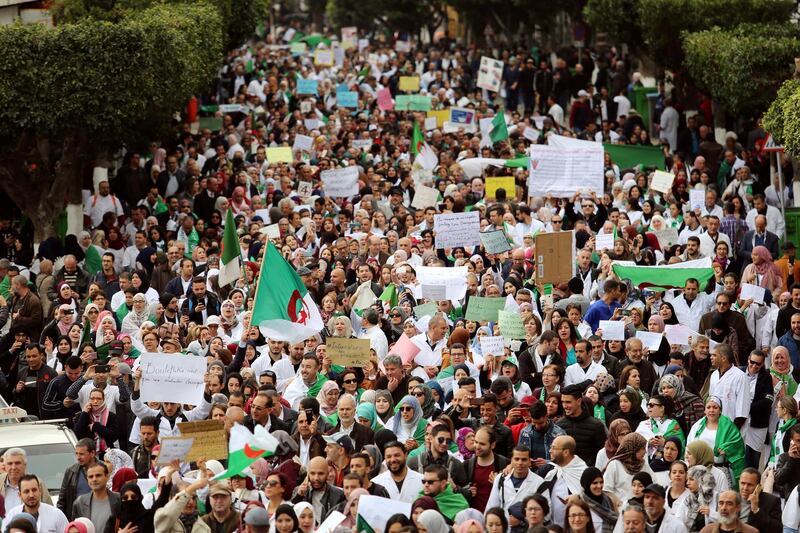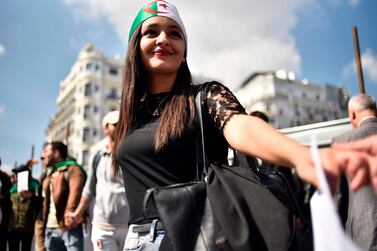Algeria’s president of 20 years, who stood down on Tuesday evening, is seeking forgiveness from the people of his oil-rich nation as protesters prepare for more mass rallies on Friday.
Abdelaziz Bouteflika bid farewell to Algerians in a letter released after he stood down, urging them to “stay united, never divide yourselves".
The ailing president's plan to seek a fifth term triggered weeks of mounting protests until the army chief, Lt Gen Ahmed Salah, demanded his immediate departure.
Mr Bouteflika, 82, has rarely been seen in public since he suffered a stroke in 2013 and regularly spends long stretches receiving treatment overseas.
Speaking to those who forced him from office, he said the women and young people who led the protests were “the beating heart of our nation” and deserved special attention.
“I ask your forgiveness for any failing towards you,” Mr Bouteflika wrote on Wednesday. “I am leaving the political scene without any sadness or fear for the future of our country."
But the future is now uncertain.
Although Mr Bouteflika has left, the demands of the protest movement have not been achieved.
Given his poor health in recent years, few Algerians believe Mr Bouteflika was at the helm.
They say a group of cronies called “Le Pouvoir” – the power – have been in charge of the country.
“It’s definitely the bringing of a new phase and we’re turning a new page in our country’s history,” said Tin Hinane El Kadi, a researcher at the London School of Economics who is from Algeria and was there for the protests.
"However, it’s just a first victory and most people here are determined to go further."
Now the protesters want real democratic change, not tokenistic reform and a younger, healthier version of Mr Bouteflika in the presidency.
“I’m worried for my country now, but it just begins,” said Chellali Khalil, 27, an engineer from Algiers who has been on the streets since the start of the demonstrations.
“The population movement has to become an opposition movement. We need someone good to represent the whole movement.
"But for the moment, the population doesn’t choose one yet because there is not someone that the whole population can trust.”
Although the army struck the final blow to Mr Bouteflika's rule, protesters say they will turn out again on Friday to make it clear to the military that they do not want them to play a role in what happens next.
Memories live on of the military coup in 1988 and the following 10-year civil war that led to hundreds of thousands of deaths.
Protesters are demanding a democratic system and the election of a candidate for all Algerians.
“If we get a military government system it will be really not good,” Mr Khalil said.
“We tried it and in my future, the future of my country, I want to see a perfect, pure democracy."







